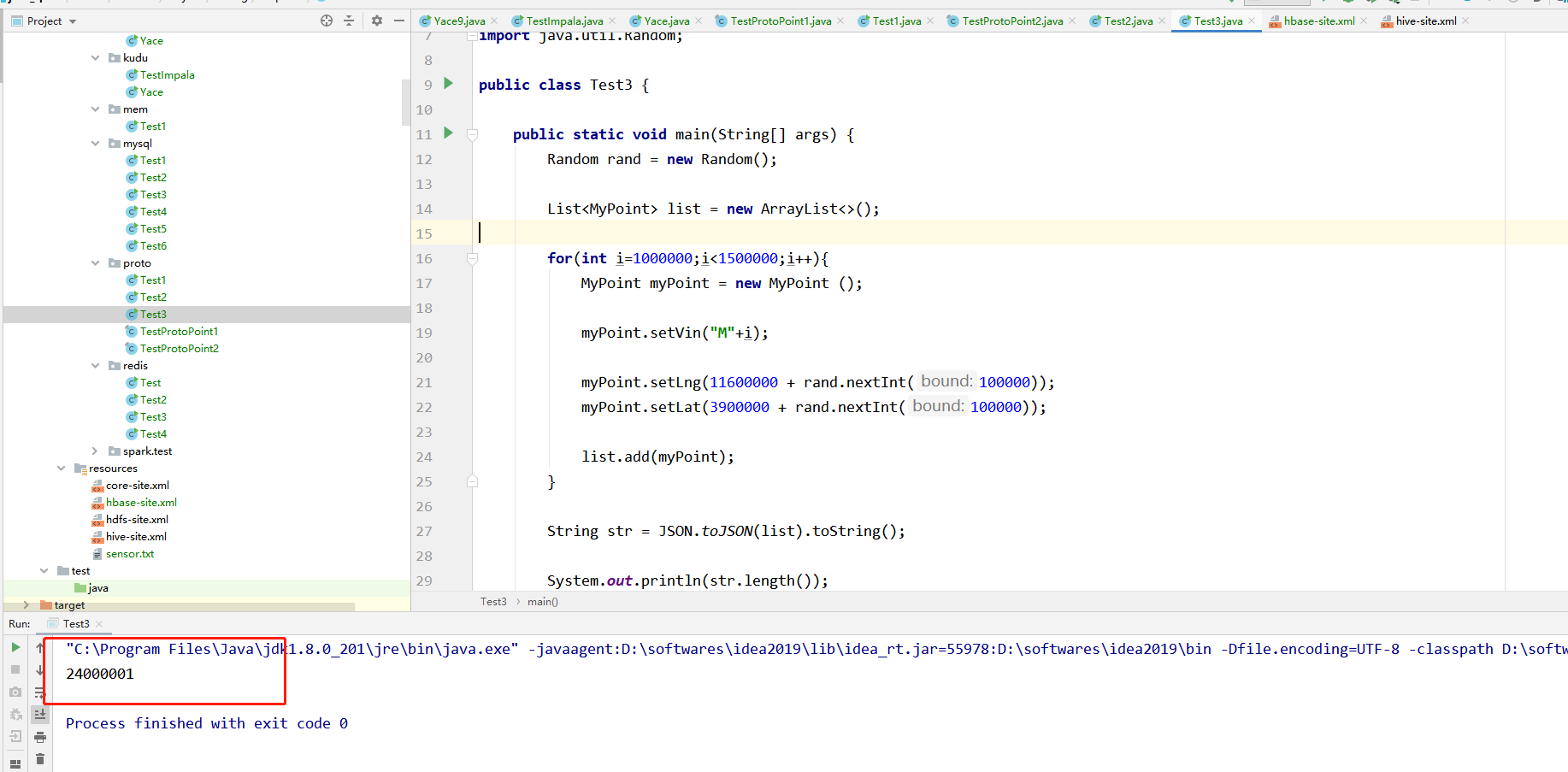protobuf和json字符串大小对比
json字符串拼装程序
package org.proto; import com.alibaba.fastjson.JSON; import java.util.ArrayList; import java.util.List; import java.util.Random; public class Test3 { public static void main(String[] args) { Random rand = new Random(); List<MyPoint> list = new ArrayList<>(); for(int i=1000000;i<1500000;i++){ MyPoint myPoint = new MyPoint (); myPoint.setVin("M"+i); myPoint.setLng(11600000 + rand.nextInt(100000)); myPoint.setLat(3900000 + rand.nextInt(100000)); list.add(myPoint); } String str = JSON.toJSON(list).toString(); System.out.println(str.length()); } public static class MyPoint { private String vin; private int lng; private int lat; public String getVin() { return vin; } public void setVin(String vin) { this.vin = vin; } public int getLng() { return lng; } public void setLng(int lng) { this.lng = lng; } public int getLat() { return lat; } public void setLat(int lat) { this.lat = lat; } } }
json字符串空间大小

protobuf的数据结构
option java_outer_classname = "TestProtoPoint2"; option java_package = "org.proto"; message Points{ repeated MyPoint myPoint=1; } message MyPoint{ optional string vin=1; optional int32 lng=2; optional int32 lat=3; }
protobuf数据拼装程序
package org.proto; import java.io.FileOutputStream; import java.util.Random; public class Test2 { public static void main(String[] args) throws Exception{ final TestProtoPoint2.Points.Builder builder = TestProtoPoint2.Points.newBuilder(); Random rand = new Random(); for(int i=1000000;i<1500000;i++){ TestProtoPoint2.MyPoint.Builder myPoint = TestProtoPoint2.MyPoint.newBuilder(); myPoint.setVin("M"+i); myPoint.setLng(11600000 + rand.nextInt(100000)); myPoint.setLat(3900000 + rand.nextInt(100000)); builder.addMyPoint(myPoint); } byte[] bs = builder.build().toByteArray(); FileOutputStream fos = new java.io.FileOutputStream("d:/test.pbf"); fos.write(bs); fos.flush(); fos.close(); System.out.println(bs.length); } }
protobuf序列号空间占用大小




